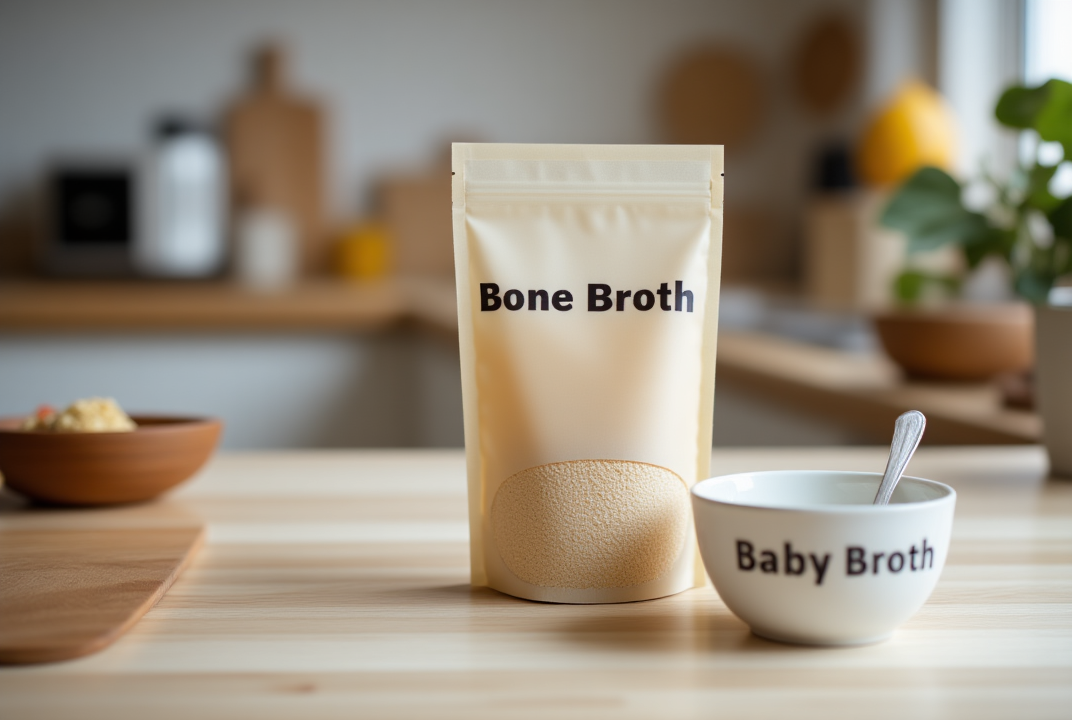
Introducing new foods to your baby is both exciting and nerve-wracking, especially when you want every bite to support their growth and well-being. Bone broth, a time-honored staple in many traditional diets, is gaining popularity among parents seeking natural, nutrient-rich options for their children. If you’re wondering whether babies can have bone broth and how to serve it safely, you’re in the right place—let’s dive into the research, expert recommendations, and step-by-step guidance to help you make the best choice for your family.
Why Are Some Parents Considering Bone Broth for Babies?
Many parents are considering bone broth for babies because it offers a natural source of easily digestible nutrients, including collagen, amino acids, and essential minerals like calcium and magnesium. Bone broth is valued for its gentle support of developing digestive systems and its potential to strengthen immunity, making it an appealing choice for families who prioritize holistic wellness. Additionally, parents who follow ancestral or traditional diets appreciate bone broth’s long history as a nourishing first food, and they seek to introduce its benefits early to help lay a strong foundation for their child’s lifelong health.
What Are the Benefits of Bone Broth for Babies?
- Supports Digestive Health: Bone broth contains gelatin and amino acids that can help soothe and strengthen a baby’s developing gut, making it easier to digest other foods.
- Boosts Immunity: Rich in minerals and compounds like collagen, bone broth may help support a healthy immune system, offering gentle protection as babies encounter new germs.
- Provides Essential Nutrients: Bone broth is a natural source of important nutrients such as calcium, magnesium, phosphorus, and trace minerals that contribute to healthy growth and development.
- Hydrates and Nourishes: With its high water content and gentle flavor, bone broth helps keep babies hydrated while delivering nourishment in a form that’s easy to consume.
- Promotes Joint and Bone Health: The collagen and amino acids in bone broth support the development of strong bones, joints, and connective tissues during a baby’s rapid growth phases.

Can Babies Have Bone Broth?
Yes, babies can have bone broth when it is prepared safely and introduced at the appropriate age—typically around six months, alongside other first foods. Bone broth is gentle on developing digestive systems and offers a nourishing source of minerals, collagen, and amino acids. However, it’s important to ensure the broth is unsalted, free from added seasonings, and made from high-quality, organic bones to avoid contaminants. Always consult your pediatrician before introducing bone broth to your baby’s diet, and start with small amounts to monitor for any sensitivities or reactions.
How Much Bone Broth For Babies?
When introducing bone broth to babies, start with just a few teaspoons once a day, gradually increasing to a few tablespoons as your baby shows interest and tolerates it well. Bone broth should be offered as a supplement to breast milk, formula, or other primary foods—not as a replacement—since babies still need the full spectrum of nutrients these provide. Aim to serve bone broth a few times per week, always observing your baby for any signs of sensitivity. As with any new food, consult your pediatrician for personalized guidance based on your child’s age, development, and dietary needs.
Baby Bone Broth Chart
|
Baby’s Age |
Bone Broth Amount |
Frequency |
Preparation Tips |
Notes |
|
6–8 months |
1–2 teaspoons |
2–3 times per week |
Use unsalted, strained broth; introduce slowly |
Offer alone or mixed with purees |
|
8–10 months |
1–2 tablespoons |
2–4 times per week |
Continue with mild, clear broth; avoid strong flavors |
Can be added to mashed foods or grains |
|
10–12 months |
2–4 tablespoons |
3–5 times per week |
Gradually introduce slightly thicker broths |
Mix with soups, stews, or finger foods |
|
12+ months |
1/4–1/2 cup |
3–5 times per week |
Can use in a wider variety of family meals |
Ensure broth remains low in salt and additives |
Always consult your pediatrician before introducing new foods, and watch for any signs of sensitivity or allergies.
What Type Of Bone Broth Is Best For Babies?
The best bone broth for babies is made from high-quality, organic bones—such as chicken, beef, or turkey—sourced from pasture-raised or grass-fed animals to ensure purity and nutrient density. Chicken bone broth is often preferred for its mild flavor and gentle digestibility, making it a great starting point for infants. It’s important to avoid broths with added salt, artificial flavors, or strong seasonings, as babies’ systems are sensitive to these ingredients. Homemade bone broth allows you to control the ingredients and ensure the broth is free from additives, providing a safe, nourishing option that supports your baby’s early nutrition.
How Should You Prepare Bone Broth for a Baby?
To prepare bone broth for a baby, use high-quality, organic bones from chicken, beef, or turkey, and simmer them gently with filtered water for several hours to extract maximum nutrients. Avoid adding salt, onions, garlic, or strong spices, as these can be harsh on a baby’s sensitive system. Once cooked, strain the broth thoroughly to remove any bone fragments and excess fat, then let it cool before serving. You can offer the broth on its own, mix it into purees, or use it to thin other baby foods. Always store leftover broth in the refrigerator and use within a few days, or freeze in small portions for convenience.
Baby Broth Tips
- Start Slow: Introduce bone broth in small amounts and gradually increase as your baby shows interest and tolerance, always watching for any signs of sensitivity.
- Keep It Simple: Use only high-quality bones and filtered water, avoiding salt, strong spices, and additives to ensure the broth is gentle on your baby’s system.
- Strain Thoroughly: Always strain the broth well to remove any bone fragments or excess fat, ensuring a smooth, safe texture for your baby.
- Serve Warm, Not Hot: Let the broth cool to a safe, lukewarm temperature before offering it to your baby to prevent burns and make it more palatable.
- Store Safely: Refrigerate leftover broth promptly and use within a few days, or freeze in small portions for easy access and freshness.
Conclusion
Bone broth can be a nourishing and gentle addition to your baby’s diet when introduced thoughtfully and prepared with care. Its rich blend of minerals, collagen, and amino acids supports healthy growth, digestion, and immunity, making it a favorite among parents who value natural nutrition. By starting with small amounts, choosing high-quality ingredients, and consulting your pediatrician, you can confidently offer bone broth as part of your baby’s early food journey. With mindful preparation and attention to your child’s unique needs, bone broth can help lay a strong foundation for lifelong wellness.

Final Thoughts
Looking for the most effective bone broth to support your child’s immune system and overall health? Check out Dr. Kellyann’s best sellers, where you’ll find a variety of wholesome options like chicken, beef, and french onion—all made without GMOs or added sugars. These easy-to-prepare broths make it simple to nourish your family’s gut and boost daily wellness. Discover more at Dr. Kellyann’s and choose the perfect flavor for your household.
Sources
- https://www.webmd.com/diet/health-benefits-bone-broth
- https://capitalizemytitle.com/tablespoon-and-teaspoon-abbreviation/
- https://www.babycenter.com/baby/solids-finger-foods/when-can-my-baby-eat-spicy-foods_1368539




